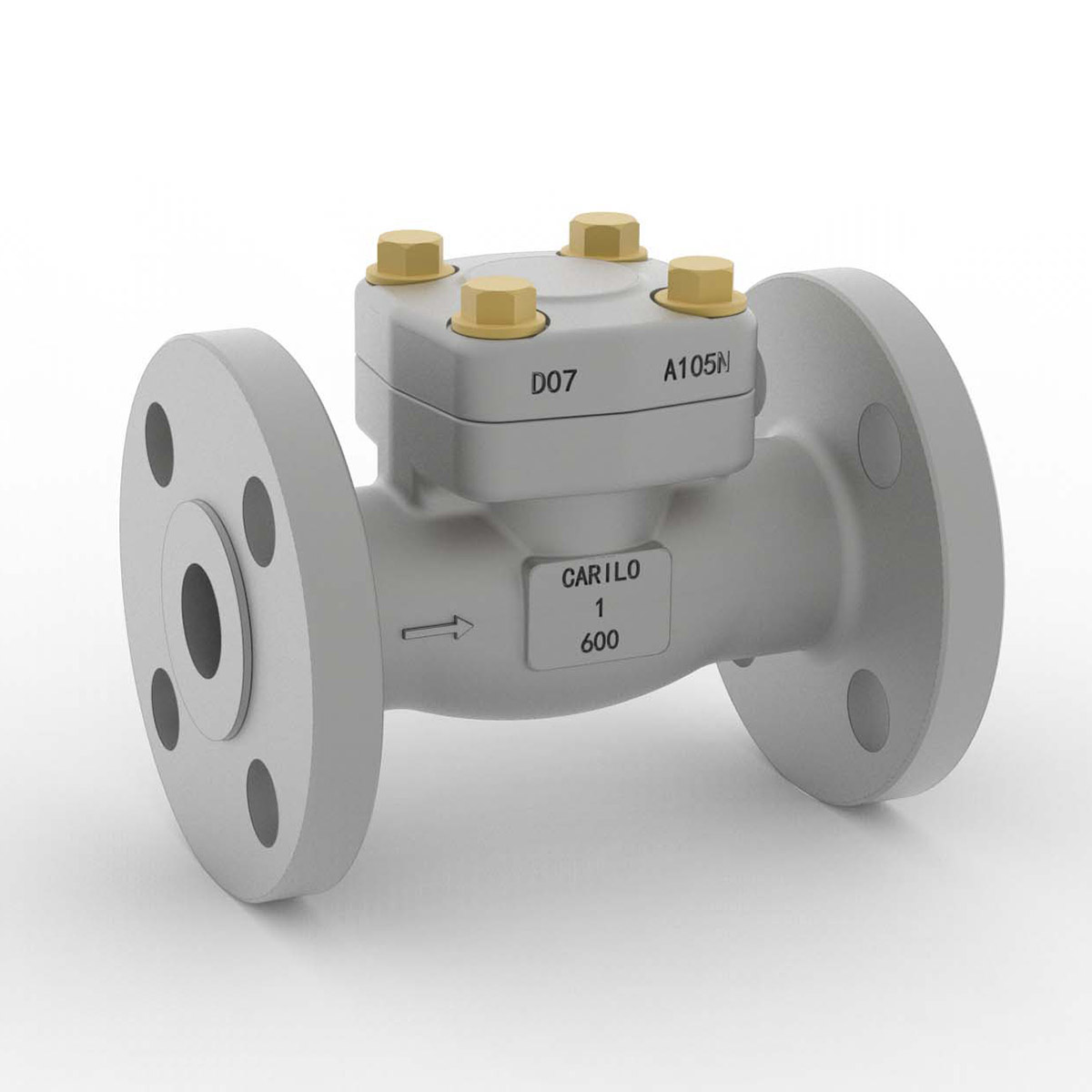In an industrial setting, check valves are instrumental in silently upholding the order and safety of various systems. They are essential in defending against flow reversal, which can interrupt operations or harm sensitive gear, keeping pressure levels steady, and sticking to safety norms.
Dive into this guide to understand check valves more deeply, focusing on their types, how they work, and the factors that matter when choosing the right one. This info will help you enhance and safeguard the systems you manage.
Understanding Check Valves Function and Distinctions
In systems handling fluids, ensuring the right flow direction is where check valves come in. Check valve suppliers call them one-way valves or backflow preventers because they let media pass one way while blocking the opposite path.
However, check valves and non-return valves differ slightly. Since the 70s, check valves have undergone strict tests to confirm they are leakproof and safe for drinking water use.
While people may use the terms interchangeably, it is key to know the distinction, especially when choosing parts for systems where stopping backflow is vital. Understanding this helps you better grasp the role of check valves in keeping industrial and environmental systems safe and efficient.
Applications of Check Valves in Industrial Environments
Check valves are indispensable where fluid control is key. They:
- Prevent backflow in meters and pumps, thus ensuring device longevity and trustworthiness.
- Keep clean and dirty water apart in water treatment facilities.
- Prevent reverse flow when moving water between tanks, avoiding inefficiencies.
- Keep systems intact during fixes and smooth out fluid system operations.
Considering these roles, it is clear that check valves are key to the safety and functioning of industrial setups.
Check valves are vital across various industrial scenarios. Here are some crucial uses that show their importance:
- Shielding gear from damage.
- Separating treated from untreated water in water treatment plants.
- Stopping reverse flow during water transfers.
- Keeping system integrity during fixes.
- Aiding in fluid system operations.
Realising these uses emphasises the essential nature of check valves in keeping industrial systems safe and running well.
How Check Valves Operate Mechanics and Pressure Control
Check valves work independently, managing media flow in pipes without manual or outside help. They rely on pressure differences to work. Normally closed to stop backflow, they open when media at the inlet exerts enough pressure. The valve shuts if the pressure drops or outlet pressure tops inlet pressure.
Two main ports comprise a check valve: an inlet and an outlet. They are linked by a mechanism that responds to pressure shifts. The cracking pressure is the least inlet pressure needed to let enough media through to detect flow, stopping the valve from opening under tiny pressures that could cause trouble or failures.
The valve’s closing part may use springs, weights, or gravity. For instance, spring-loaded valves need media pressure to beat the spring force to start the flow, ensuring the valve opens only when it should and guarding against reverse flow harm.
Knowing how these valves balance pressure control and mechanical trustworthiness helps you see why picking the right check valve is crucial for your needs.
Also read: Spring Check Valves versus Swing Check Valves Essential Insights
Exploring Types of Check Valves and Their Industrial Uses
In your role, knowing the types of check valves is vital. Let us look at some:
- Swing Check Valves- Common in water systems because of their simple, effective build.
- Tilting Disc Check Valves- Good for systems with big-diameter flows.
- Ball Check Valves- Chosen for sewage uses due to their design that keeps flow clear.
- Axial Silent Check Valves- Valued for their fast closing, vital in protecting pumps from reverse flow.
- Double Check Valves- Set up in series in water pipes to give extra safety against dirt.
With a handle on the various check valve styles, you understand the importance of choosing the right one for your system’s specific needs.
Selecting the Right Check Valve- Criteria and Considerations
Picking a check valve means thinking about several points to ensure a good fit for your system:
- Cracking pressure- The least pressure needed to open a valve.
- Size and layout- The valve must match the pipe sizes and fit into the system's design.
- Suitable materials- The valve’s material must work with the media to avoid rust and leaks.
- Operating terms- Temperature, pressure, and flow speed must fall within the valve’s range.
- Cost issues- Weigh the upfront price against long-term operation and upkeep expenses.
Considering these points will guide you to choose wisely, balancing cost with lasting reliability and system performance. Your choice is not just for now but for your piping system's future. The right check valve makes for a safe, cost-efficient, and smooth operation, protecting your gear and processes for years ahead.
Mastering Check Valve Selection for Optimal System Performance
For more tips on picking the best check valve solution, get in touch with a reputed and experienced valve supplier in Russia. By working with experts, you tap into deep experience, assuring your facilities get top-notch help and wisdom now and in the future.
